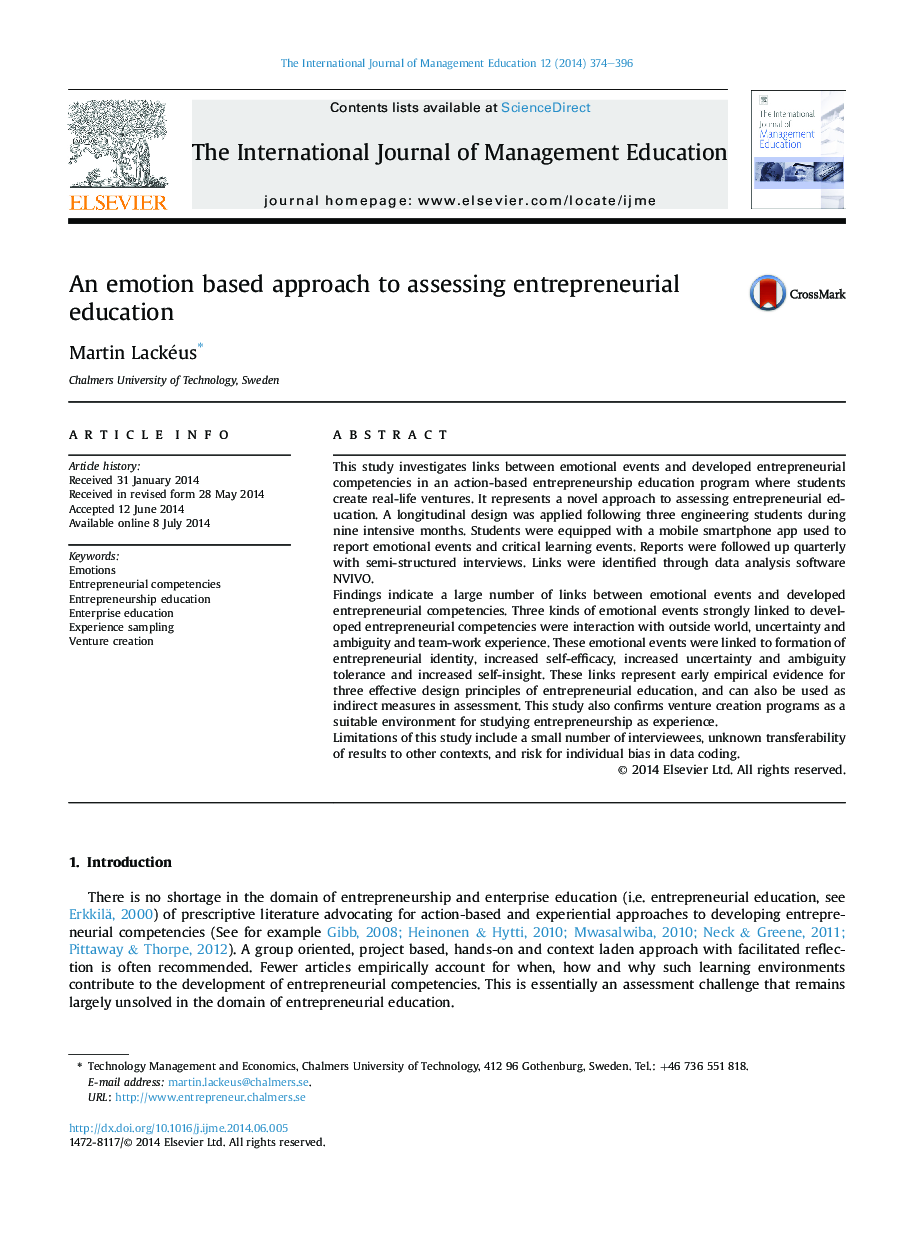| Article ID | Journal | Published Year | Pages | File Type |
|---|---|---|---|---|
| 357393 | The International Journal of Management Education | 2014 | 23 Pages |
•A novel emotion-based assessment strategy for entrepreneurial education has been outlined.•Presents early empirical evidence for three effective pedagogical design principles.•Outlines a large number of links between emotional events and entrepreneurial competencies.•Contains frameworks for emotional events and entrepreneurial competencies.•Confirms venture creation programs as suitable for studying entrepreneurship as experience.
This study investigates links between emotional events and developed entrepreneurial competencies in an action-based entrepreneurship education program where students create real-life ventures. It represents a novel approach to assessing entrepreneurial education. A longitudinal design was applied following three engineering students during nine intensive months. Students were equipped with a mobile smartphone app used to report emotional events and critical learning events. Reports were followed up quarterly with semi-structured interviews. Links were identified through data analysis software NVIVO.Findings indicate a large number of links between emotional events and developed entrepreneurial competencies. Three kinds of emotional events strongly linked to developed entrepreneurial competencies were interaction with outside world, uncertainty and ambiguity and team-work experience. These emotional events were linked to formation of entrepreneurial identity, increased self-efficacy, increased uncertainty and ambiguity tolerance and increased self-insight. These links represent early empirical evidence for three effective design principles of entrepreneurial education, and can also be used as indirect measures in assessment. This study also confirms venture creation programs as a suitable environment for studying entrepreneurship as experience.Limitations of this study include a small number of interviewees, unknown transferability of results to other contexts, and risk for individual bias in data coding.
